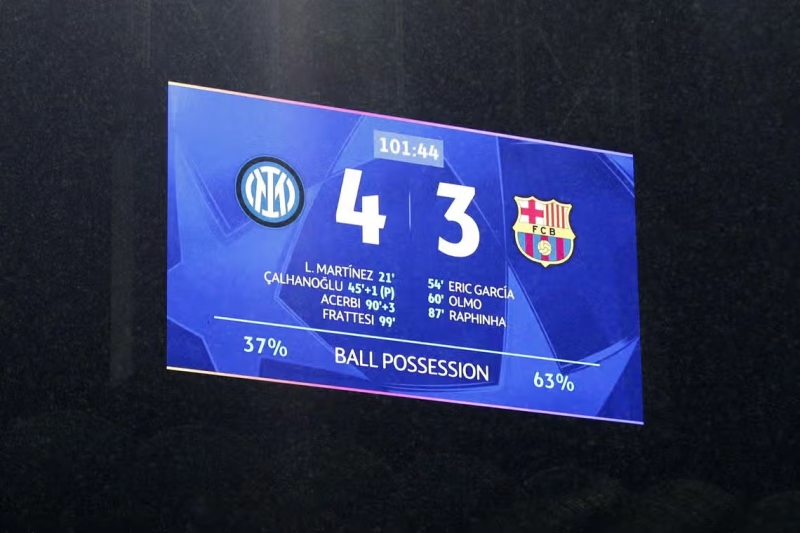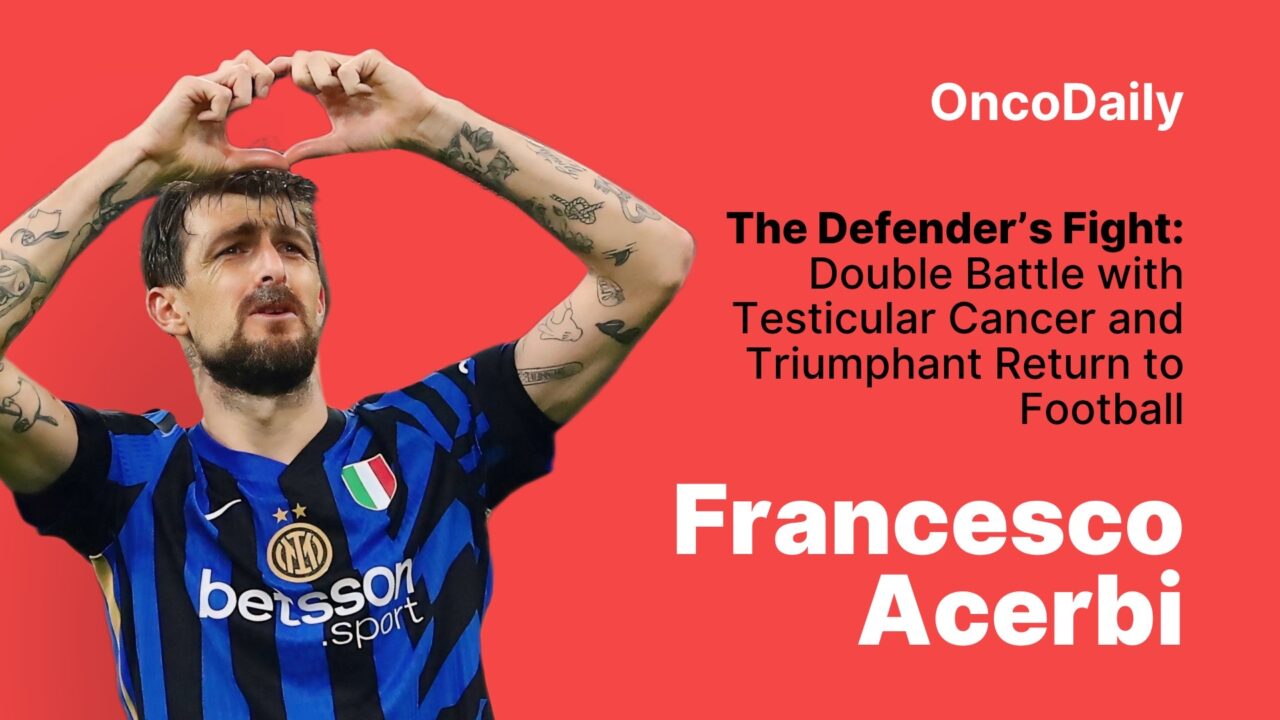
Francesco Acerbi and Testicular Cancer: The Defender’s Fight and Triumphant Return to Football
On May 6, 2025, Inter Milan beat Barcelona 4-3 after extra time in a thrilling Champions League semifinal at San Siro, winning 7-6 on aggregate. Inter took an early lead, but Barcelona fought back and even went ahead late in the game. In stoppage time, Francesco Acerbi scored a dramatic equalizer, sending the match to extra time. Davide Frattesi then scored the winner, securing Inter’s place in the final.
“Without cancer, I would have retired at 28… but with cancers, my real life began, giving me a second chance”
Francesco Acerbi, a centre-back for Inter Milan and the Italy national team, was raised in Vizzolo Predabissi, Italy. He began his career at Pavia and played for various Italian clubs, including Reggina, Chievo, AC Milan, Sassuolo, and Lazio, before joining Inter Milan in 2022. Known for his defensive skills and leadership, Acerbi was part of Italy’s UEFA Euro 2020-winning squad.
Acerbi’s career is also marked by his resilience. In 2013, he was diagnosed with testicular cancer but made a successful return to football in 2014 after surgery and treatment. Since then, he has earned over 30 caps for Italy and remained a key figure in Serie A.
How Francesco Acerbi Was Diagnosed with Testicular Cancer
Francesco Acerbi was diagnosed with testicular cancer in July 2013 during a pre-season medical examination after joining Sassuolo. Unusual blood test results revealed a tumor in his testicle, leading to surgery to remove it shortly thereafter. Despite the initial operation, in December 2013, a doping test showed elevated hormone levels (hCG), indicating the cancer had returned.
What Was Francesco Acerbi’s Initial Reaction to His Testicular Cancer Diagnosis?
Francesco Acerbi’s initial reaction to his testicular cancer diagnosis in 2013 was one of shock and fear, but also determination. When he first discovered the tumor during a pre-season medical, he couldn’t immediately tell his family and went on a bike ride to clear his mind before processing the news. He described the period as frightening but saw the diagnosis as a challenge he needed to face head-on. Acerbi has said that although he told himself he had no fear, he realized it was impossible not to be afraid.
Over time, he came to view the illness as something that gave him a new purpose in life, helping him overcome personal struggles like depression and alcoholism after his father’s death. He even said, “Cancer saved me,” because it gave him a fight and a limit to overcome, which renewed his passion for football and life.
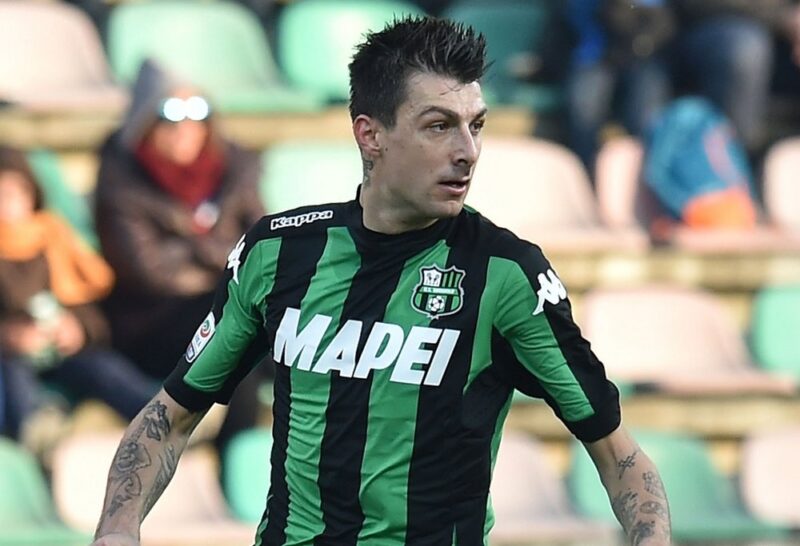
What Treatments Did Francesco Acerbi Undergo?
Francesco Acerbi’s treatment for testicular cancer began in 2013 when a tumor was discovered during a pre-season medical examination at Sassuolo. He was immediately hospitalized and underwent surgery to remove the tumor. Shortly after surgery, he resumed training and played in Serie A matches. However, the cancer returned later that year, which was revealed after he failed a doping test due to irregular hormone levels caused by the tumor’s recurrence.
Following the return of the cancer, Acerbi underwent an intensive course of chemotherapy from January 7 to March 14, 2014. Despite the physically debilitating effects of chemotherapy, he reportedly did not miss the majority of training sessions during this period. His return to competitive football was postponed until the 2014-15 season after completing treatment.
Support From Friends and Family
Francesco Acerbi received crucial emotional and psychological support from family, friends, teammates, and professional help during his battle with testicular cancer and personal struggles. After the death of his father in 2012, Acerbi fell into depression and alcoholism, feeling lost and disconnected from football. He credits the cancer diagnosis and fight as a turning point that gave him a new purpose and helped him overcome his downward spiral.
“I started drinking, I drank everything. Cancer saved me. I had something to fight against again, a limit to overcome.”
He told La Repubblica.
He has emphasized the importance of having a small circle of trusted people around him-two or three close individuals whom he could rely on during his toughest times. This support network, combined with professional psychological help, was vital in helping him cope with the mental challenges of cancer and recovery. Acerbi has maintained ongoing mental health care, including weekly video calls with a psychoanalyst, a routine started during his illness.
What Support Did Francesco Acerbi Receive From His Teammates and Fans?
Francesco Acerbi received strong and meaningful support from both his teammates and fans during his battle with cancer and throughout his career. While undergoing chemotherapy in early 2014, Acerbi continued to train alongside his Sassuolo teammates, which helped him stay connected and motivated despite the challenges of treatment. His determination and positive attitude during this period turned him into an icon for Sassuolo supporters and earned him admiration across Italy.
When he returned to play after treatment, Acerbi was warmly welcomed back by fans, who recognized his bravery and resilience. A sports photographer and Sassuolo fan described him as a “lion” and emphasized how the fans gave him a great welcome after his long absence due to illness. His openness about his struggles and his fighting spirit made him a beloved figure among supporters.
Moreover, Acerbi’s teammates and the wider football community showed solidarity with him. For example, during a visit with the Italy national team to a children’s hospital, Acerbi stayed behind to spend more time with patients, reflecting his empathetic nature and the respect he commands among peers. His teammates’ support was also evident in how they helped him maintain his place in top-level football after his health battles.
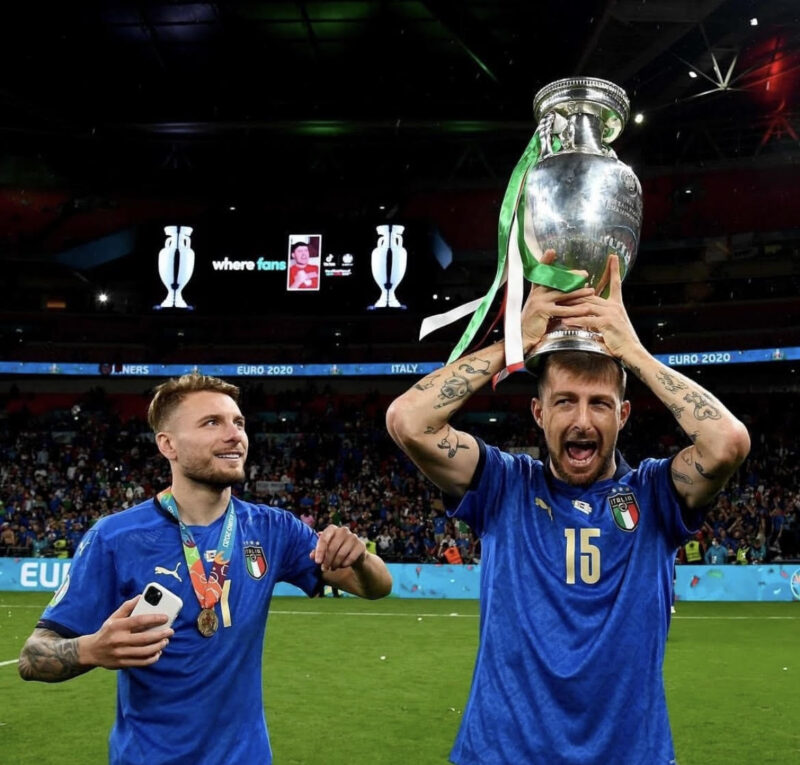
What Is Francesco Acerbi’s Life Like After His Cancer Battle?
After 2014, Francesco Acerbi’s life and career took a remarkable turn. After beating cancer, he came back stronger and became one of the most reliable defenders in Italy’s Serie A. He spent several successful years at Sassuolo, where he showed great consistency and earned respect from fans and players alike.
In 2018, Acerbi moved to Lazio, a big club with passionate supporters. There, he became known for his toughness and almost broke the record for most consecutive games played by an outfield player in Serie A. During his time at Lazio, he won important trophies like two Coppa Italia titles and three Supercoppa Italiana trophies, proving he could perform at the highest level.
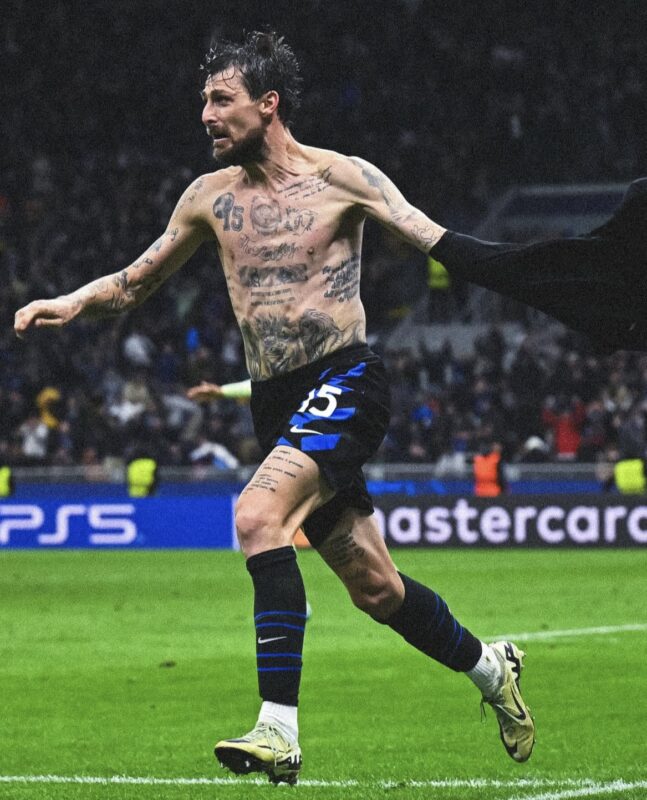
In 2022, Acerbi joined Inter Milan on loan and quickly became an important player for the team. He helped Inter win the Serie A title in the 2023/24 season, even scoring a crucial goal in a big win over their rivals AC Milan. Acerbi also played well in Europe, including the 2023 Champions League final. His most memorable moment came in May 2025, when he scored a last-minute goal against Barcelona that helped Inter reach the Champions League final, making him a hero for the club.
On the international stage, Acerbi made his debut for Italy in 2014 and steadily became a key player. His hard work paid off when he was part of the Italy team that won the UEFA Euro 2020, one of the biggest achievements in his career.
Francesco Acerbi’s Personal Life
Francesco Acerbi is married to Claudia Scarpari. The couple met when they were teenagers and have been together for many years. They married in 2017 and have built a family together. They are parents to at least two daughters-Olivia, who was around three years old as of 2023, and a second baby born more recently. Acerbi has spoken warmly about Claudia, calling her the “woman of my life” who brought him peace and happiness, and emphasizing how their relationship has been important for his emotional growth and stability.
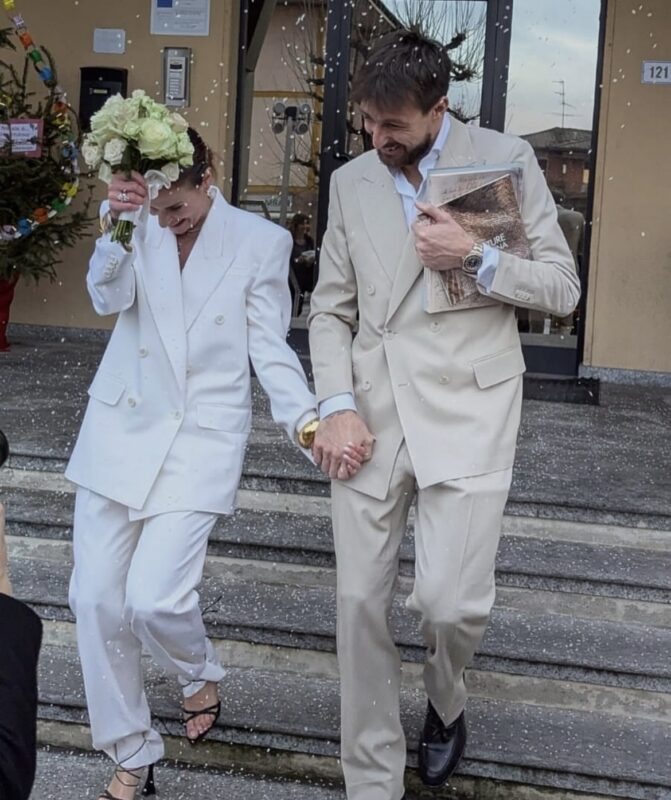
Their relationship began simply-they met at the beach and have stayed close ever since. Acerbi has expressed deep commitment to Claudia, saying she is the only one for him and that he has rediscovered love and serenity through their bond. The couple shares a strong family life, which has been a key part of Acerbi’s personal happiness after overcoming difficult times in his life.
What Cause Testicular Cancer?
Testicular cancer primarily arises from malignant transformation of germ cells within the testis, most commonly affecting males between puberty and 40 years of age. The pathogenesis involves genetic mutations leading to uncontrolled proliferation of testicular germ-cell tumors (TGCTs), which include seminomas and non-seminomatous germ cell tumors. Although the precise etiology remains unclear, several risk factors have been identified.
Key risk factors include a history of cryptorchidism (undescended testis), which significantly increases the likelihood of developing testicular cancer. A positive family history, particularly in first-degree relatives, also elevates risk. Other associations include prior testicular cancer, infertility, certain genetic conditions such as Klinefelter syndrome, and HIV infection. Lifestyle factors like cannabis use have been linked to an increased risk, though evidence is less definitive.
Diagnosis relies on physical examination and imaging, with any solid testicular mass presumed malignant until proven otherwise. Serum tumor markers-alpha-fetoprotein (AFP), human chorionic gonadotropin (hCG), and lactate dehydrogenase (LDH)-are essential for diagnosis, staging, and monitoring. Radical inguinal orchiectomy is the standard initial treatment, as testis-sparing surgery is generally reserved for highly selected cases.
Imaging with CT scans of the abdomen and pelvis, and chest imaging, is critical for staging and treatment planning. Positron emission tomography (PET) scans are not recommended for initial staging. Management decisions are based on tumor histology, serum markers, and imaging findings, ideally made within a multidisciplinary team setting.
You Can Also Read Eric Abidal and Liver Cancer: How He Returned to Football After Overcoming Illness by Oncodaily.
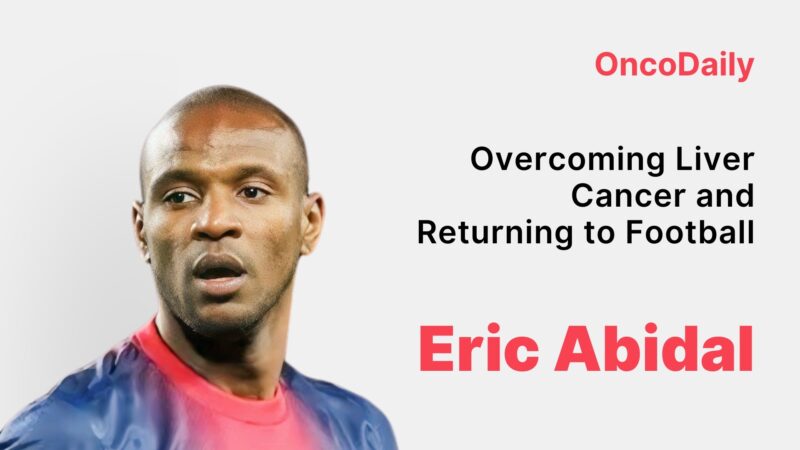
How Rare Is Testicular Cancer and What Are the Survival Rates?
Testicular cancer is a relatively rare but highly treatable disease, with key statistics highlighting its prognosis and impact. The incidence rate is approximately 6.0 new cases per 100,000 men per year (age-adjusted), while the mortality rate is much lower at 0.3 deaths per 100,000 men per year (age-adjusted). About 0.4% of men will be diagnosed with testicular cancer at some point in their lifetime. In 2022, around 309,202 men in the United States were living with testicular cancer.
The overall five-year relative survival rate is 94.9%, with nearly 99% survival for cases where the cancer is localized and confined to the testicle. Survival rates decrease slightly to around 96% when there is regional spread to nearby lymph nodes and more significantly to approximately 73% when distant metastasis occurs. For pure seminoma, an international study reports a five-year survival rate of 95% for good prognosis cases, where the cancer has spread only to lymph nodes or lungs, and about 90% for intermediate prognosis cases involving spread beyond lungs or lymph nodes to organs such as the brain or liver.
The lifetime risk of dying from testicular cancer is roughly one in 5,000 men. The disease most commonly affects men aged 20 to 40, with the average age at diagnosis around 33 years. These statistics represent population-level data and can vary individually based on factors such as cancer subtype, stage at diagnosis, and response to treatment. Advances in medical care continue to improve outcomes over time.
You Can Also Read Testicular Cancer: Early Signs, Stages, Causes, Symptoms,Diagnosis, and Latest Research in 2025 by Oncodaily
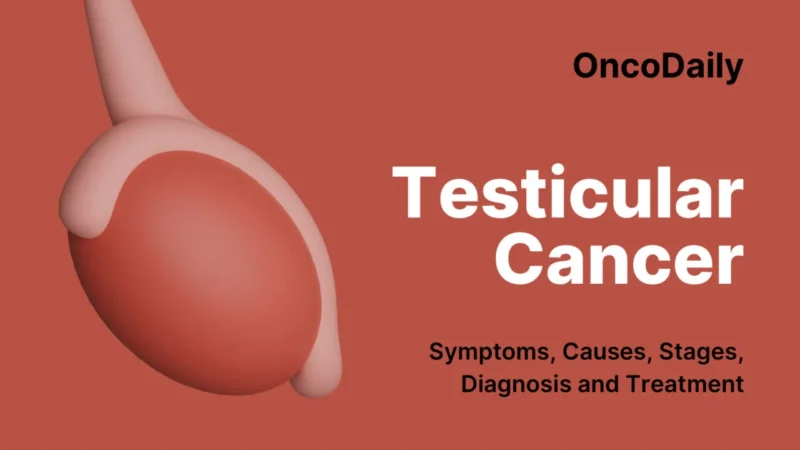
How Can Testicular Cancer Be Prevented?
Preventing testicular cancer involves awareness and early detection rather than guaranteed avoidance, as there are no proven ways to completely prevent it. The best strategy is to know your risk factors-such as a history of undescended testicles, family history of testicular cancer, or previous testicular cancer-and to regularly check for any changes in your testicles. Monthly self-exams, ideally done in a warm shower, can help you become familiar with the normal feel of your testicles so you can notice any lumps, swelling, or changes early and seek medical advice promptly.
Medical experts recommend that healthcare providers include testicular exams as part of routine physical check-ups, especially for males aged 15 to 39, when testicular cancer is most common. If you or your child has an undescended testicle, discussing corrective surgery before puberty with a doctor may reduce risk.
Routine screening of asymptomatic men by clinicians or self-exams is not universally recommended due to insufficient evidence that it improves outcomes and because of potential harms like anxiety or unnecessary procedures. However, being informed and promptly reporting any abnormalities remains key.
You Can Also Read Lance Armstrong and Testicular Cancer: Story, Symptoms, Treatment by Oncodaily
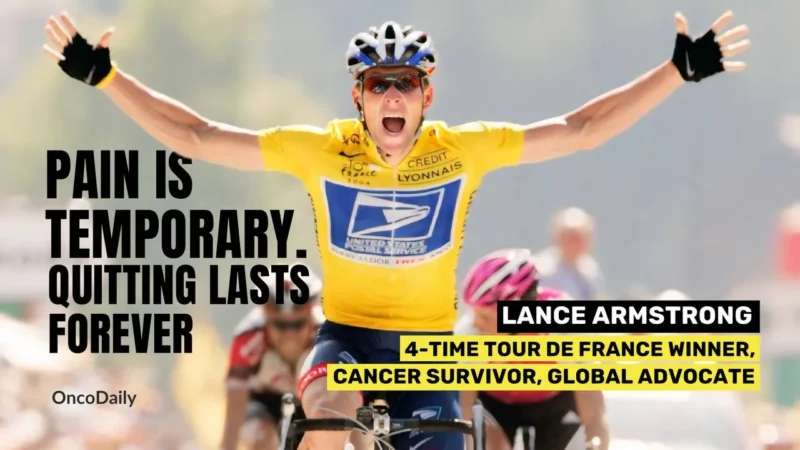
Written by Aharon Tsaturyan MD
FAQ
When was Francesco Acerbi diagnosed with cancer?
Acerbi was first diagnosed with testicular cancer in 2013 during a medical examination after signing for Sassuolo.
How many times has Acerbi battled cancer?
He has survived testicular cancer twice, with the tumor returning after initial surgery and requiring chemotherapy.
What treatment did Acerbi undergo for his cancer?
He had surgery to remove the tumor followed by chemotherapy between January and March 2014.
Did Acerbi’s cancer battle impact his personal life?
Yes, Acerbi credits cancer with saving him from alcoholism and depression following his father’s death.
How does Acerbi view his cancer experience?
He says cancer gave him a second chance at life, helped him set realistic goals, and improved his mental strength.
Has Acerbi spoken publicly about his cancer?
Yes, he has openly discussed his illness and recovery in interviews and uses his story to inspire others.
Did Acerbi continue training during chemotherapy?
Remarkably, he continued training with his teammates throughout his chemotherapy treatment.
What role did mental health support play in Acerbi’s recovery?
Acerbi emphasizes ongoing psychological support, including weekly sessions with a psychoanalyst.
Has Acerbi’s cancer story influenced his leadership or public image?
His resilience has made him a respected figure and role model, admired for both his football skills and personal courage.
-
Challenging the Status Quo in Colorectal Cancer 2024
December 6-8, 2024
-
ESMO 2024 Congress
September 13-17, 2024
-
ASCO Annual Meeting
May 30 - June 4, 2024
-
Yvonne Award 2024
May 31, 2024
-
OncoThon 2024, Online
Feb. 15, 2024
-
Global Summit on War & Cancer 2023, Online
Dec. 14-16, 2023

